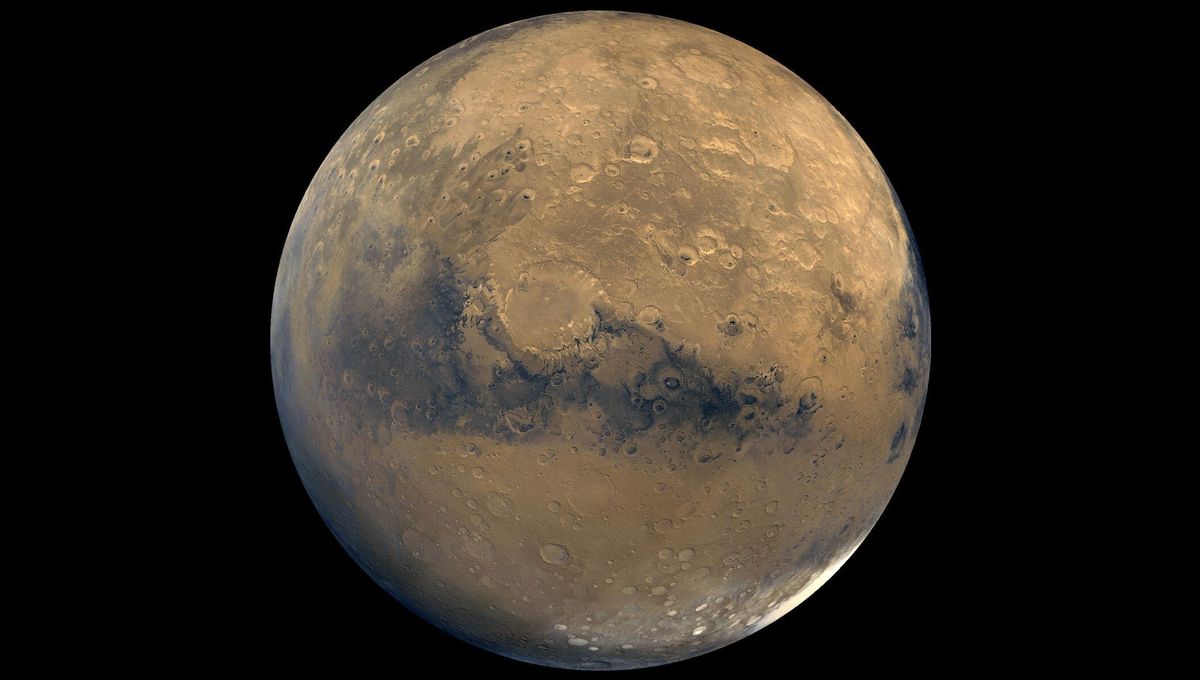
NASA’s InSight might have stopped working after four intense years on Mars last December, but its data will keep scientists busy for a long time. The multifunction lander studied marsquakes and the internal properties of the Red Planet. Scientists were able to work out that the rotation rate of the planet is increasing by 4 milliarcseconds per year.
That means that every year, the Martian day (called a Sol) is getting shorter by a fraction of a millisecond. It currently lasts about 24 hours and 37 minutes. The data was collected by the Rotation and Interior Structure Experiment, or RISE. This was composed of a radio transponder and antennas that used signals from the Deep Space Network (DSN) to accurately measure the rotation of Mars and how it changes.
“It’s really cool to be able to get this latest measurement – and so precisely,” InSight’s principal investigator, Bruce Banerdt of NASA’s Jet Propulsion Laboratory, said in a statement. “I’ve been involved in efforts to get a geophysical station like InSight onto Mars for a long time, and results like this make all those decades of work worth it.”
The DSN is three giant radio antennas in the US, Spain, and Australia that NASA uses to communicate with spacecraft beyond the Moon. NASA would send a signal to InSight, and RISE would reflect it back. Tiny changes in frequency due to the Doppler shift – the same phenomenon that makes an ambulance siren change pitch depending on whether it is approaching or moving away from us – provided the team with detailed measurements of the rotation rate of Mars.
“What we’re looking for are variations that are just a few tens of centimeters over the course of a Martian year,” said the paper’s lead author and RISE’s principal investigator, Sebastien Le Maistre at the Royal Observatory of Belgium. “It takes a very long time and a lot of data to accumulate before we can even see these variations.”
The work looked at the first 900 days of InSight on Mars. The researchers had to carefully assess sources of noise such as the solar wind and even the moisture in Earth’s atmosphere. The changes in the rotation haven’t got a certain cause yet. Changes in ice distribution might be to blame.
“It’s a historic experiment,” said Le Maistre. “We have spent a lot of time and energy preparing for the experiment and anticipating these discoveries. But despite this, we were still surprised along the way – and it’s not over, since RISE still has a lot to reveal about Mars.”
But that is not all: The measurements allowed researchers to better estimate the nutation of Mars, basically how much it wobbles. The cause of that is the liquid core inside the planet, the size of which was already estimated. The new work places the radius of the core between 1,790 and 1,850 kilometers (1,112 and 1,150 miles). Mars’s radius is 3,390 kilometers (2,106 miles). The data also implies something peculiar is happening deep beneath the planet’s surface.
“RISE’s data indicate the core’s shape cannot be explained by its rotation alone,” said the paper’s second author, Attilio Rivoldini of the Royal Observatory of Belgium. “That shape requires regions of slightly higher or lower density buried deep within the mantle.”
The findings are published in the journal Nature.
Source Link: Mars Is Spinning Faster Every Year, Making Martian Days Shorter